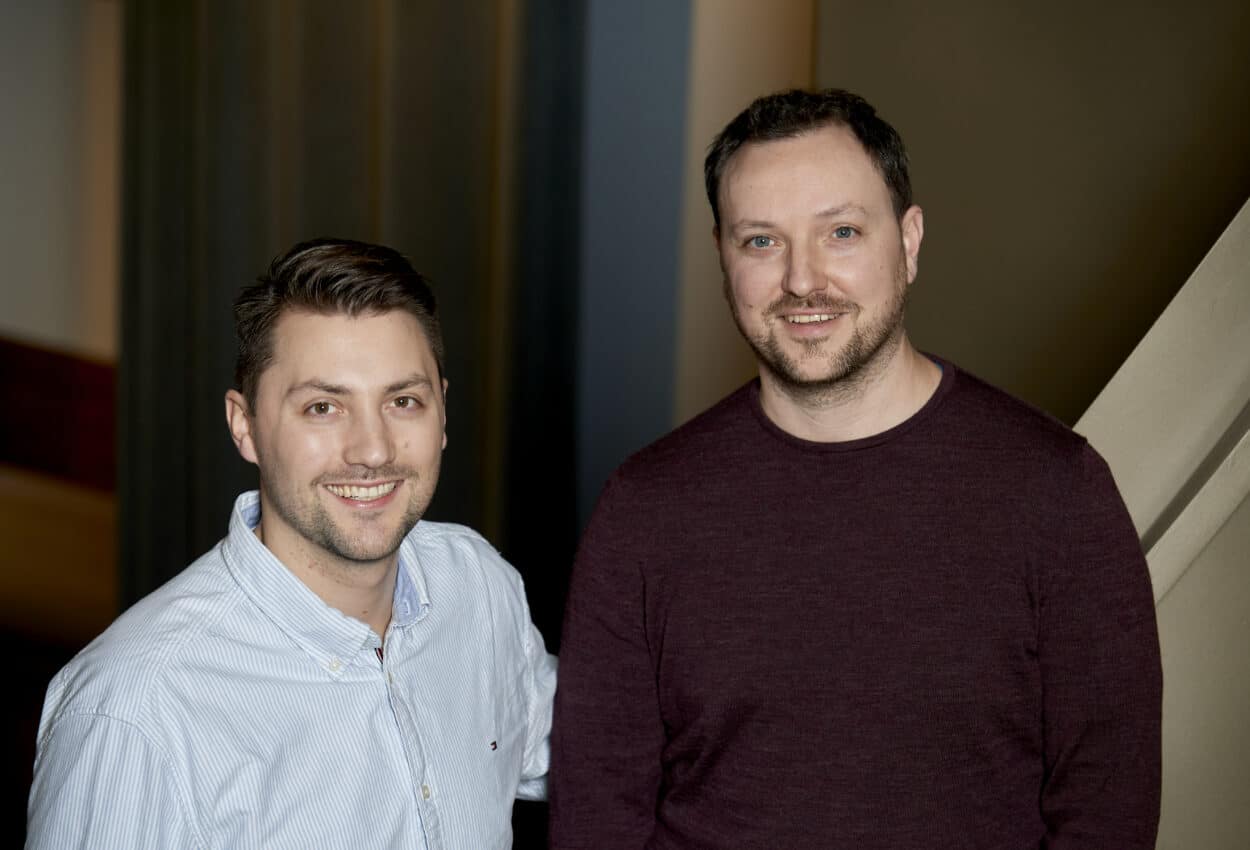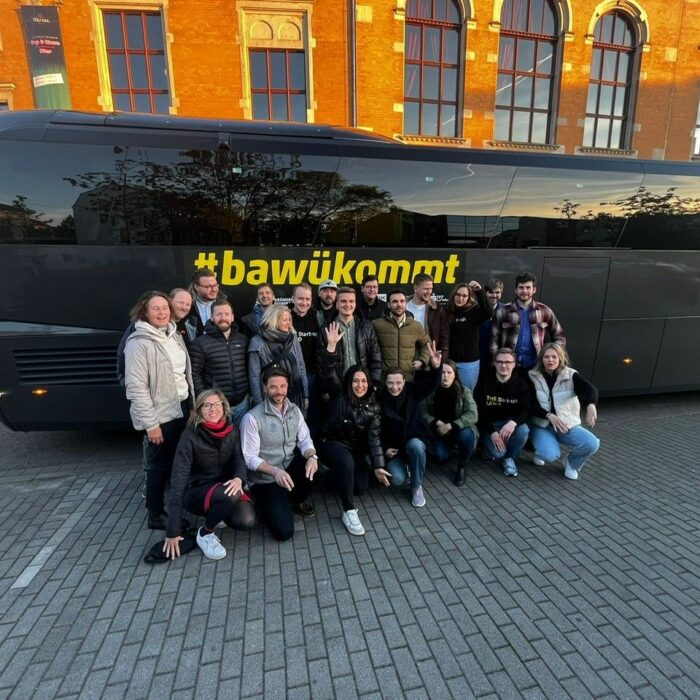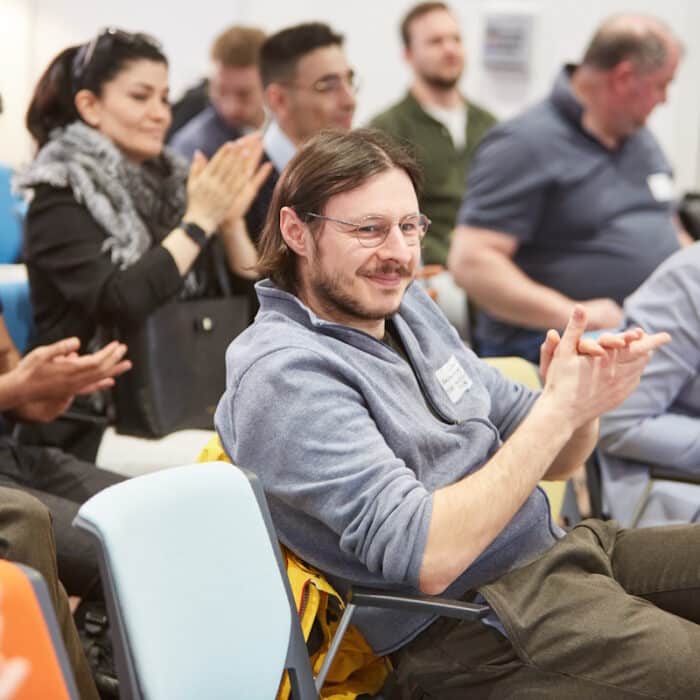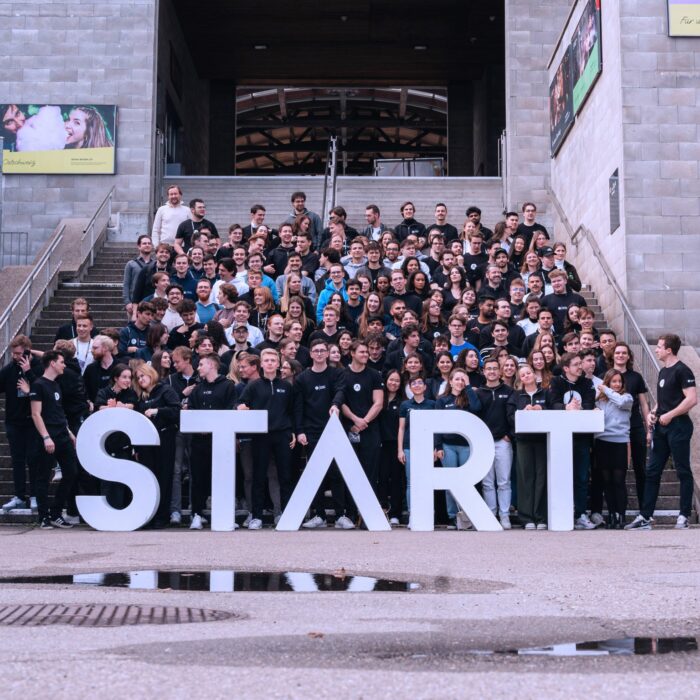Founder of the month: PHABIOC
20.04.2023
Sandra Schöttelndreier
Founder of the month
Our start-up of the month is PHABIOC. The KIT start-up develops and distributes novel tools such as biomimetic barriers, microtitre plates and analytical devices for small-scale studies and high-throughput screenings in the pharmaceutical industry and biotechnology.
What does your company stand for?
PHABIOC develops and distributes novel tools such as biomimetic barriers (PermeaPad®), microplates (SpecPlate) and analysers for small-scale studies and high-throughput screenings in the pharmaceutical industry and biotechnology. Our products are distinguished by their ability to deliver direct customer value through more advanced and effective analytical capabilities. With the goal in mind to provide our customers with innovative and efficient solutions for their complex tasks in the laboratory, our tools convince through their simplicity and uniqueness.
Where and how did you come up with the bright idea to found SpecPlate?
The idea for SpecPlate came to Carsten during his doctorate. After the proof of concept, the idea had almost disappeared in the drawer, had it not been for a fortunate circumstance that gave rise to the initial drive to commercialise the plate. Since all the KIT developers involved had no idea how something like this could be produced on a large scale, a realisation partner was sought. This partner was found in innoMe GmbH, where Jannik was the responsible business development manager in the pharmaceutical and biotech division. On the innoMe side, he took over the supervision of a joint ZIM project (Central Innovation Programme for SMEs) with KIT. During the ZIM project, innoMe and KIT initiated a patent application and further developed the SpecPlate to pre-series status. Shortly after the end of the project, innoMe had to restructure internally and thus focus on another business unit. Jannik then came up with the idea of separating the pharmaceutical division from innoMe as a spin-off. In order to realise this idea, we applied for an EXIST start-up grant and have been in the process of setting up PHABIOC as an independent company since receiving the funding.

How did the founding team come together?
During the time we spent together on the project, it became clear that the two of us were in perfect harmony and that our skills complemented each other well. Through intensive exchange and joint work, we developed a business idea that we wanted to realise with the foundation.
Where do you see the hurdles in the founding process? Where did you get support?
It took some time until the foundation could be carried out. First it was the drafting of the contracts, then the appointment with the notary and then the entry in the commercial register. Despite good planning and preparation, you have no influence on many processes and you have to be patient.
We sought support in drafting the various contracts (articles of association, bylaws, shareholder agreement and cooperation agreement). For this, we found a lawyer with a lot of experience in corporate law who has already worked with many start-ups. Since we have had an investor on board from the beginning, we needed good and properly formulated contracts that define the basis of the cooperation. This is very important and not to be neglected! We are sure that the money for the lawyer is well invested here.
In addition, an experienced notary is an advantage who has often dealt with such contracts. In the preparation and also during the notary’s appointment, you can still get helpful hints.
We sought the opinions of various tax advisors on the basic approach of how we wanted to set up the shareholder structure. For example, we discussed the question of whether we should invest in the company as private individuals or with an investment vehicle that had to be set up beforehand. A quick exchange with tax advisors is also very helpful during the actual founding and in the start-up phase.
Furthermore, we have repeatedly spoken with founders from our immediate environment, both in the run-up to the founding and now, and have thus received valuable tips so that some problems do not arise in the first place.

What was one of your biggest challenges during the founding phase?
For us, the biggest challenge was the coordination with the investor and the drafting of the contracts. As soon as third parties come into play, everything becomes much more complicated and lengthy. But even that is eventually mastered and slowly all the necessary bureaucratic procedures are taken care of so that we can be operational.
Has anything changed for you since the formal foundation? And if so, what?
We have more duties since the foundation and learn something every day. How does customs clearance work, what formalities have to be completed for importing and exporting goods, how do you prepare a correct offer and invoice, how do you plan and monitor liquidity?
Of course, it is also refreshing to be responsible for the company ourselves and we can now talk to customers on a different basis, as we can sign non-disclosure agreements, etc.
What qualities do you think a founder should have?
Resilience and a lot of patience. A lot of things don’t go as planned and not as fast as you hope. You should always believe in your idea/product and keep going. If there are setbacks, solutions must be found and you must not let yourself be thwarted by missed opportunities.
Question for our start-up community: Do you have any practical tips for other young entrepreneurs?
Get to grips with the customer. Ask yourself what the actual problem is for which your product offers the solution. Only then can the product be successful. Get in touch with potential customers as early as possible to use the feedback for finalising the product! At the beginning, it is best to contact customers from your circle of friends or your immediate network. Here the paths are short, you get quick and honest feedback and you don’t “burn” potential customers with whom you don’t yet have such good relationships with prototypes and pre-production parts.
Question for our greening community: What would you perhaps do differently from today’s perspective?
Since our investor holds one third of the shares in our company and the investor has a certain size, we do not have the status of a small or medium-sized enterprise (SME). This denies us access to interesting funding and we definitely should have considered this upfront.
What are your plans for the future? What are your next big milestones?
The next big milestone is definitely the start of serial production of our SpecPlate in late summer/autumn this year and then, of course, the market launch shortly afterwards. For this we have planned to use the HTPD (High-Throughput Process Development) conference at the end of October. For the SpecPlate, we would then come full circle, because after presenting the first prototypes at the 2017 conference, we received such a positive response that the decision was made to proceed with the commercialisation of the plate.
Thank you very much for answering the questions!


